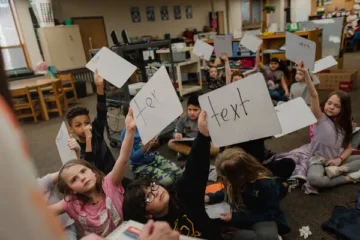In the rapidly evolving landscape of education, adaptive learning is emerging as a game changer. Imagine a classroom where lessons are customized to fit each student’s individual learning style and pace. With adaptive learning technologies, this dream is becoming a reality. These tools are designed to enhance student engagement, mastery, and independence, making learning more personalized than ever before. The experts at Campus.edu offer these insights into how adaptive learning is transforming the way students learn and how it could reshape education for the better.
Understanding Adaptive Learning
At its core, adaptive learning is an educational method that uses technology to tailor lessons and activities to meet the unique needs of each student. By analyzing a student’s performance in real time, adaptive learning systems can adjust the content, difficulty level, and pace of lessons accordingly. This means if a student is struggling with a concept, the system can provide additional resources or simpler explanations. Conversely, if a student is excelling, they can be challenged with more advanced material.
For students attending online courses or those at traditional schools, including online community colleges, adaptive learning can create a more effective and engaging educational experience. Instead of a one-size-fits-all approach, students receive personalized support that empowers them to take charge of their learning.
The Benefits of Personalized Learning
One of the biggest advantages of adaptive learning is that it encourages self-directed learning. Students gain insight into their mastery of different subjects, which allows them to understand where they need to focus their efforts. This self-awareness fosters a sense of responsibility for their own education. Instead of waiting for a teacher to tell them what to study, students can actively engage with material that is relevant to them.
Another benefit is that adaptive learning systems can significantly improve student engagement. Traditional classrooms can sometimes feel monotonous, especially when lessons don’t resonate with students. However, with adaptive learning, lessons are tailored to the individual, making them more relatable and exciting. Engaging materials can spark curiosity and motivate students to delve deeper into subjects they might otherwise find uninteresting.
How Adaptive Learning Works
So, how does adaptive learning actually function? These systems utilize algorithms that analyze data from students’ interactions with educational content. As students answer questions, complete assignments, or engage in quizzes, the system collects data on their performance. This data is then used to adjust future lessons, ensuring that the content remains aligned with each student’s progress.
For example, if a student struggles with basic algebra, the adaptive learning platform might provide additional practice problems, video tutorials, or interactive exercises to reinforce those foundational concepts. On the other hand, if a student consistently excels in science, the system can present more challenging experiments or advanced readings.
The Role of Technology in Adaptive Learning
Technology plays a pivotal role in making adaptive learning possible. With the rise of online education platforms, artificial intelligence, and data analytics, schools can implement these systems more effectively. Tools like learning management systems (LMS) integrate adaptive learning features, enabling teachers to monitor student progress in real-time and adjust instruction accordingly.
Moreover, technology allows for the collection and analysis of vast amounts of data, leading to more informed decisions about curriculum design and student support. Teachers can use insights gained from adaptive learning systems to identify trends, recognize common challenges, and offer tailored support to struggling students.
Challenges and Considerations
While adaptive learning holds tremendous promise, it’s essential to recognize some of the challenges that come with it. One major concern is the potential for over-reliance on technology. If students become too accustomed to learning through adaptive systems, they may struggle with traditional learning environments that don’t offer the same level of personalization.
Another consideration is ensuring equitable access to technology. Not all students have access to the necessary devices or internet connectivity required for effective adaptive learning. Schools and policymakers must work to bridge this digital divide so that every student can benefit from these advancements in education.
The Future of Adaptive Learning
Looking ahead, the potential for adaptive learning is vast. As technology continues to evolve, we can expect more sophisticated algorithms and data analytics tools to emerge. These advancements will likely lead to even more personalized learning experiences, enabling students to thrive in ways we can only begin to imagine.
In addition, adaptive learning may become increasingly integrated into hybrid and blended learning models, where online and in-person instruction coexist. This integration can provide a more comprehensive educational experience, allowing students to benefit from both personalized learning and the social interactions that come with traditional classrooms.
Empowering Students for Success
Ultimately, adaptive learning is about empowering students to take control of their education. By providing personalized support, insight into their progress, and opportunities to work at their own pace, adaptive learning fosters a sense of independence and confidence. This approach not only helps students achieve their academic goals but also prepares them for lifelong learning.
As education continues to evolve, embracing adaptive learning technologies will be crucial for preparing students for the challenges of the future. Whether you’re a student, educator, or parent, understanding and advocating for adaptive learning can make a significant difference in how education is experienced.
Conclusion: A Transformative Shift in Education
Adaptive learning is not just a trend; it represents a transformative shift in education. By personalizing the learning experience, it creates a more engaging and effective environment for students. As we embrace this approach, we have the opportunity to redefine what education looks like for the next generation.
So, whether you’re studying in a traditional classroom or an online community college, remember that adaptive learning can help you reach your fullest potential. Embrace the changes, and let’s look forward to a future where every student has the tools they need to succeed!
Keep an eye for more news & updates on Discover Tribune!




